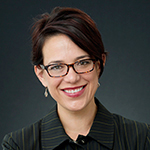 By Amy Butler
By Amy Butler
I recall the first time that I realized doctors did not know the solution to every medical problem. My thinking had been: when you have a scary, life threatening medical emergency, you go to see a medical professional, who will fix things. It was sobering the first time I realized that may not be the case.
I’ve been thinking about that moment of realization these last few days as I, along with the rest of the world, have been watching horrific acts of terror played out all over the world. How will we fix this? Surely our politicians know how to get us to a place of peaceful exchange, to right again this world that has become so desperately un-righted?
I’ve been watching, and I’m having the same sort of sinking feeling I had the first time I realized doctors can’t fix every medical problem.
The reasons political engagement seems like a long shot to keep people from killing each other are many, including the realization that the conflicts that have led to recent acts of terror are intensely complicated, generations long, and happening in cultures we don’t understand — far, far away.
I don’t think politicians can save us here, because the political response to the terror we’ve seen in these recent days is force. And more violence and intimidation, fear and killing can only, in its best expression hold a tenuous peace in place until someone throws the next match into the powder keg, and at worst widen the distance between those who can’t agree, wider and wider and wider until we lose all hope for any productive conversation or reconciliation.
And I don’t think politicians alone are going to be able to help us come together to solve the issues that divide us, because I hear already the vehement rhetoric of politicians even in our country, using recent acts of terror as excuses to inflict pain on those most vulnerable: immigrants running from the experience of terror in their everyday lives.
No, while there are many working to broker peace through political means, I think we’d better realize that it will take a lot more than political maneuvering to get us to a better world. It’s going to take all of us, not just politicians, to change the tide of hatred, violence, and injustice in the world.
Sound overwhelming to you? It does to me, too. I couldn’t solve a medical crisis — I’m not a doctor. I’m sure I can’t solve a political crisis — I’m not a diplomat.
But I am a person of faith. And if you are, too, then in the wake of terror and fear and violence and death, knowing we don’t have the answers to solve the problems we face, I think we might begin to try to remember together the things that we know about what we believe.
For example, as people of faith we have long been advocates of a narrative that does not conform to the readily accepted narrative of the world. This is an important time to embrace with all the courage we can muster, the conviction that the kingdom of God is coming to be right here and now. We can be part of that emergence by rejecting terror — on a large scale and on an individual scale — and living in radical and life-giving relationship with each other: in our families, in our communities of faith, in our neighborhoods, anywhere we have power to enact life-giving relationship.
And we believe as people of faith that we are called to welcome the stranger. Taken in, loved, and cared for by God ourselves, it is our holy responsibility and even our honor to make room in our countries, at our tables, in our hearts, for those who struggle to build lives we long for, too — lives of peace and safety, with enough to eat and good work to do and a future for our children. We can be part of healing the world by actively welcoming the stranger, and speaking up when voices of exclusion and fear ring loud and convincing.
And we believe, with the audacity of people who have been radically loved by God, that love will conquer hate. Love will conquer hate. We hang onto that conviction with every part of who we are, because the minute we give in to the fear and violence, hatred and death all around us, we become part of the problem.
Terror around the world can flash across our television screens and ring in our ears, causing us to throw our hands up in despair when we realize politicians cannot fix what is so, so broken. We can take in the terror and act in fear. Many do. But we are people of faith, and as such we take in instead the conviction that God’s kingdom is coming to be; the commitment to welcome the stranger; and the assurance that love will always have the final word.
Pastor and writer Eugene Peterson writes: “All the water in the oceans cannot sink a ship unless it gets inside. Nor can all the trouble in the world harm us unless it gets within us.”
What can we do with the desperation we feel as we look around at our broken world? We can take in the divine mandate to be God’s people in the world, and live as if we really believe it.
